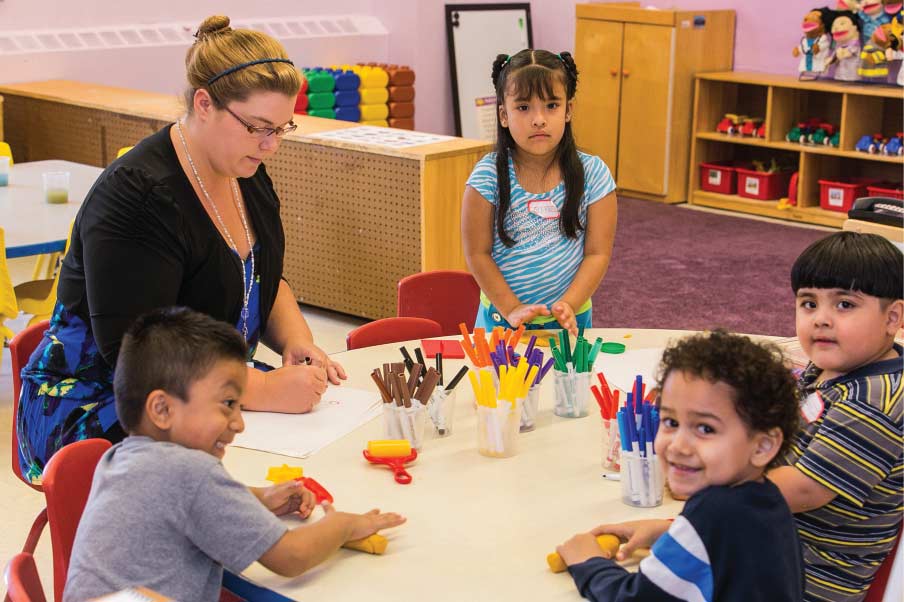
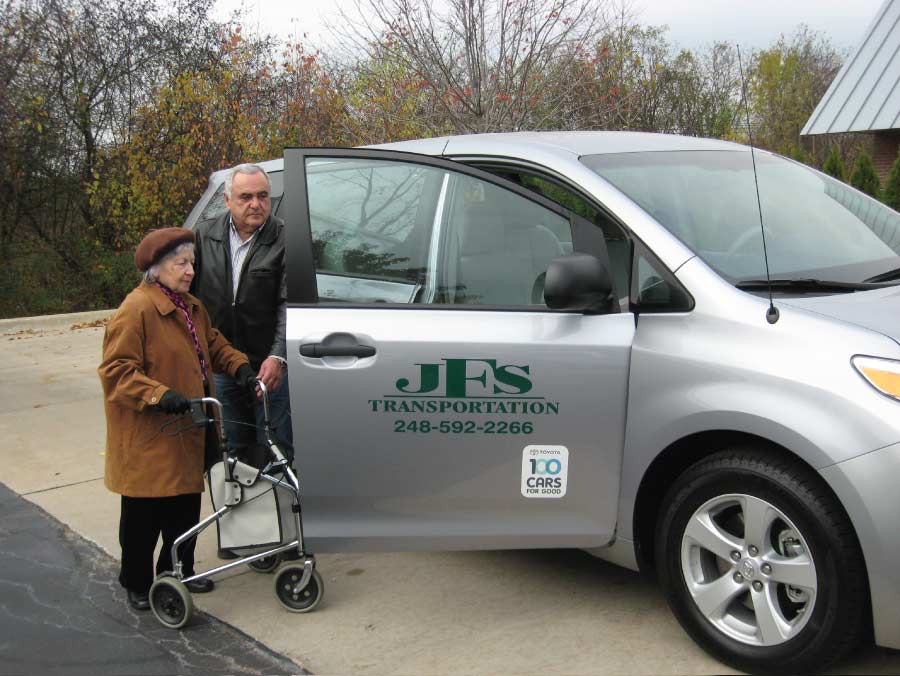
Letter from the Board Chair
This has been a rewarding first year for me as Board Chair of The Jewish Fund. You’ll see later in our annual report that we have awarded many promising grants to support important community needs, many of which have the potential to considerably improve the lives of the most vulnerable of our neighbors.
Our objectives are to address some of the significant barriers that stand in the way of people living life to its fullest. Three years ago we determined that it would be helpful to learn of these needs directly from the source — the people experiencing these needs. Typically, we learn of community needs and potential methods to address them primarily from community professionals, who are a vital resource for this information.
The survey conducted by Morpace identified two newly recognized high-level needs: 1. Awareness of the scope of social services offered by Jewish organizations was lacking, despite the availability of services, and 2. A troubling level of mental health concerns were expressed by Jewish teenagers. Convenings of both professional and volunteer leaders met for over a year to discuss and plan a response to these issues, and ultimately, two new grant requests to The Jewish Fund were developed and approved to respond to these needs.
JHELP, a new community website for resources and referrals, was launched this past year and, to date, has been showing progress in helping people learn about available resources. A major outreach and marketing campaign is critical to this effort. Additionally, a multi-pronged response to teen mental health needs has also been launched, and an array of initial programs and awareness campaigns are underway. For both initiatives, additional funding sources have committed resources, recognizing the need and the potential to make a positive impact on people’s lives through these new programs.
So what is the message? Sometimes, we need to go directly to the people whose lives we are trying to impact and ask them what they need and what we can do to help. It sounds simple, but frequently, the consumer is not engaged in addressing community needs. We have demonstrated that this is an extremely valuable process, and we encourage others to take the time and to make the effort to seek input from those they serve so that the highest needs may be prioritized.
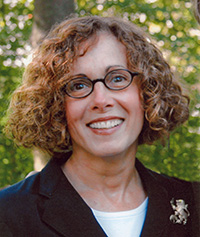

Nancy Grosfeld, Chair
The following lists show The Jewish Fund grants that were approved during the 2017-2018 fiscal year at the May and November 2017 board meetings. The lists include both new and continuation grants and are divided into sections reflecting the primary program areas of The Jewish Fund’s grantmaking priorities.
In keeping with its mission, The Jewish Fund emphasizes support of health and social welfare services which benefit vulnerable Jewish people in the community. Additionally The Fund supports innovative initiatives that enhance the historic bond between the Jewish community and Detroit.
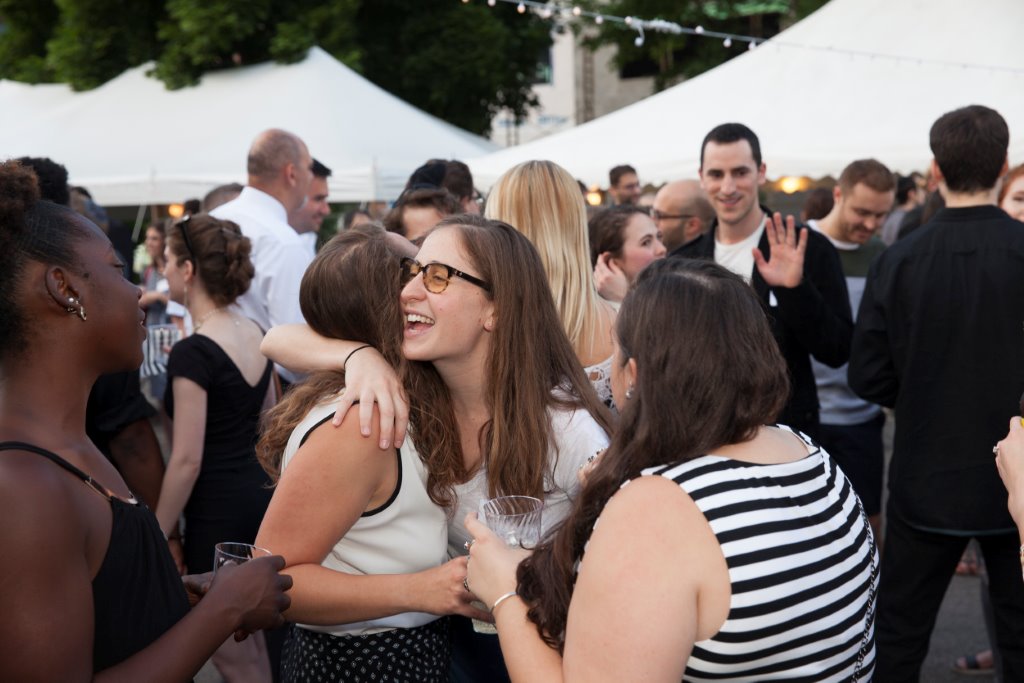
$65,000 Second year of a three-year, $195,000 grant to expand ChabaD's infrastructure and build a foundation for sustainable growth.
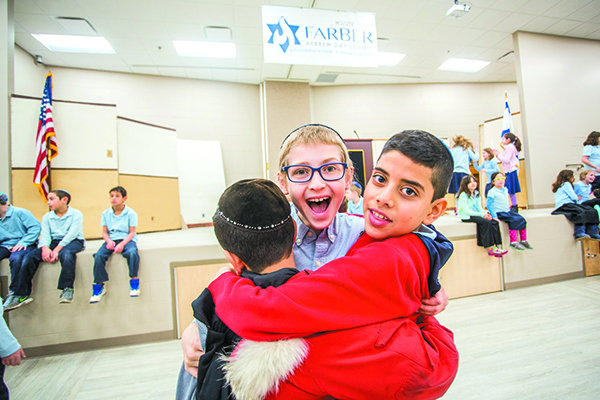
$189,200 One-year grant for the installation of security infrastructure for its new building.
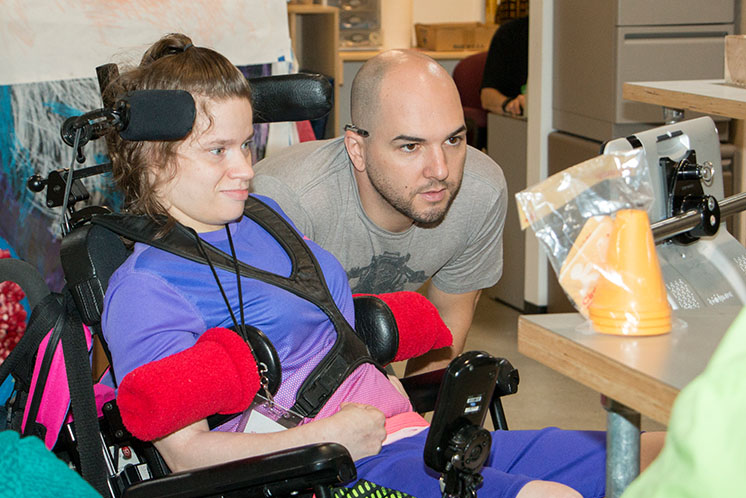
$125,000 First year of a two-year, $200,000 grant to support the hiring of a development professional and purchase technology upgrades.
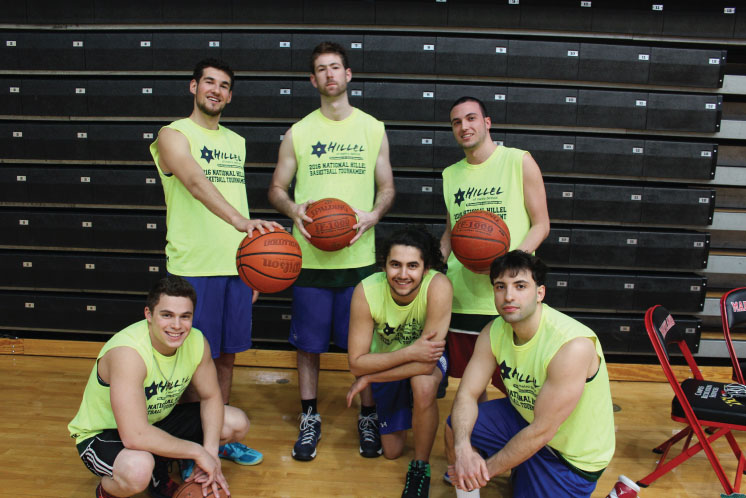
$50,000 One-year grant to extend the term of an endowment fundraising campaign for the organization.
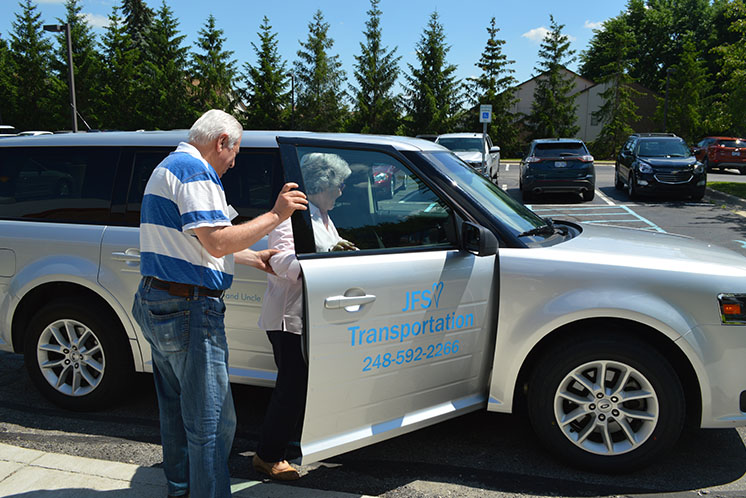
$103,007 Third year of a three-year, $370,543 grant to enhance and grow aging in place services.
$63,347 Second year of a two-year, $143,215 grant to provide mental health tools and support to teens and their families.
$382,433 Second year of a two-year, $764,866 grant to ensure adequate aging at home supports of home care and transportation for low-income Jewish older adults.
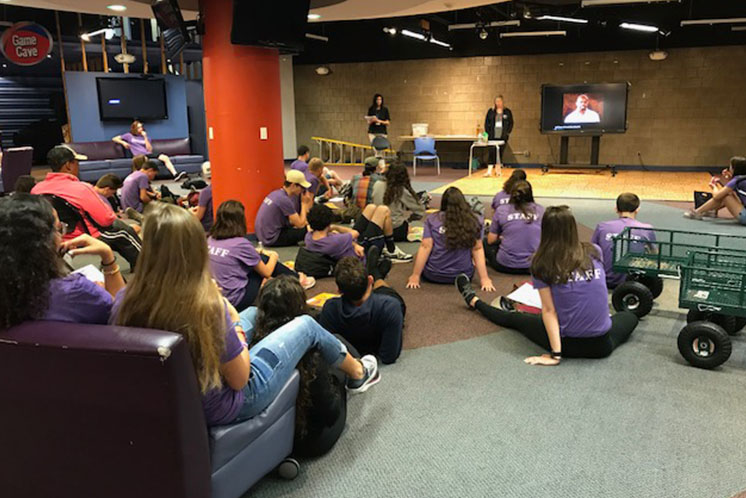

$50,000 One-year grant to support its 2018 Population Study to inform community planning.
$99,825 First year of a three-year, $236,096 grant to develop, implement and market an on-line service portal for community members seeking help and/or information regarding social service needs.
$184,836 Extension to a fourth year of a three-year grant of $500,000 to frontload special Centennial Fund gifts in the areas of health and social welfare.
$154,000 First year of a three-year, $376,500 grant to develop a community-wide staff training program to address teen mental health.
$110,600 Second year of a two-year, $331,100 grant to support the Enhanced Learning Initiative to better serve students with diverse learning needs in Jewish day schools.
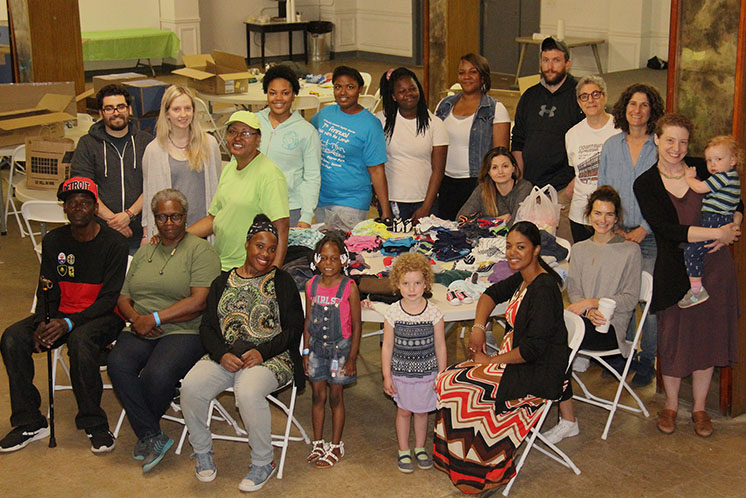
$100,000 One-year grant to enhance capacity to create deep and authentic relationships between the Jewish and Detroit communities through meaningful social and educational programs and shared experiences.
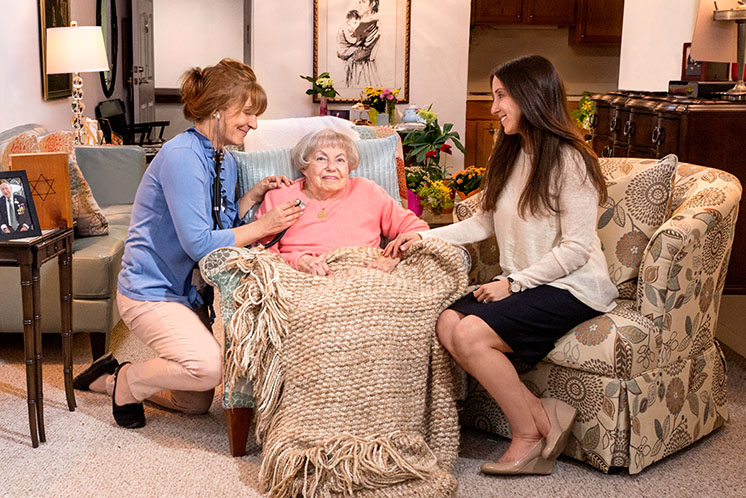
$75,000 Third year of a three-year, $225,000 grant to provide clinical support for Jewish patients with progressive terminal illness through Life Links Home-Based Palliative Care.

Up to $117,567 For the second year of a two-year grant to support Jcare services to low-income residents.
$22,200 One-year grant to engage a consulting firm to formulate a five-year strategic plan for the organization.

$65,000 Third year of a three-year, $205,500 grant to improve the delivery of integrated health care services.
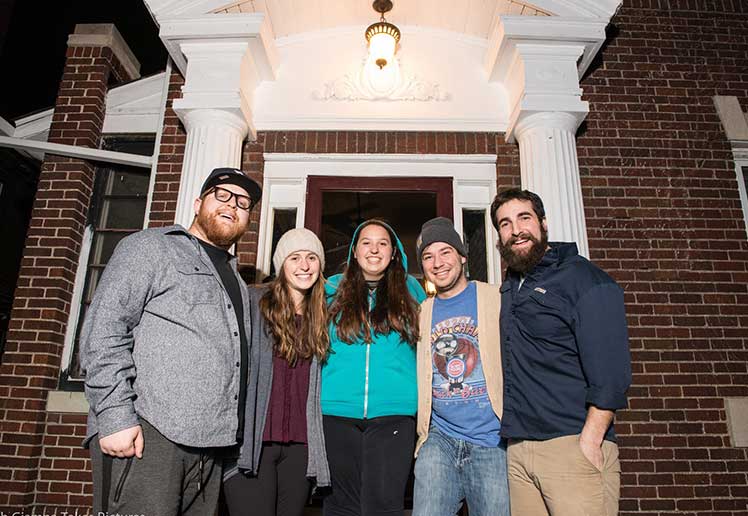
$11,550 One-year grant to extend the term of its current grant supporting programming for Moishe House Detroit City.
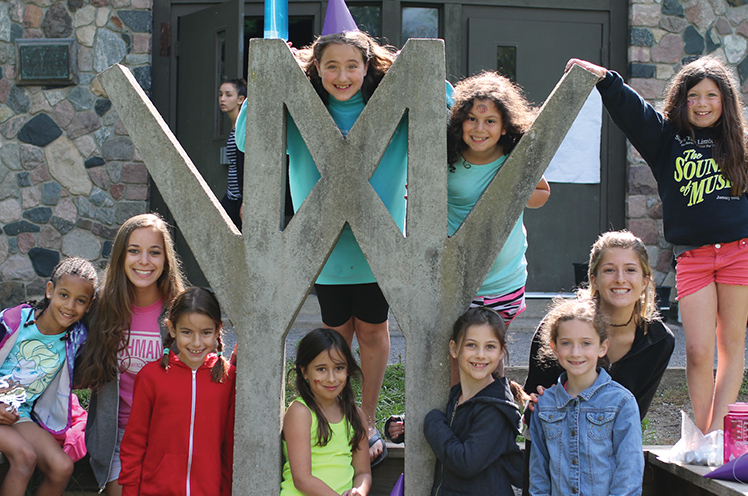
$302,358 One-year grant to enhance the health and safety of Camp Maas participants through improved fire notification systems.
In order to best respond to the health needs of vulnerable residents of Detroit and the surrounding area, The Jewish Fund supports efforts to increase access to quality health care services and to improve health outcomes through early childhood health interventions.
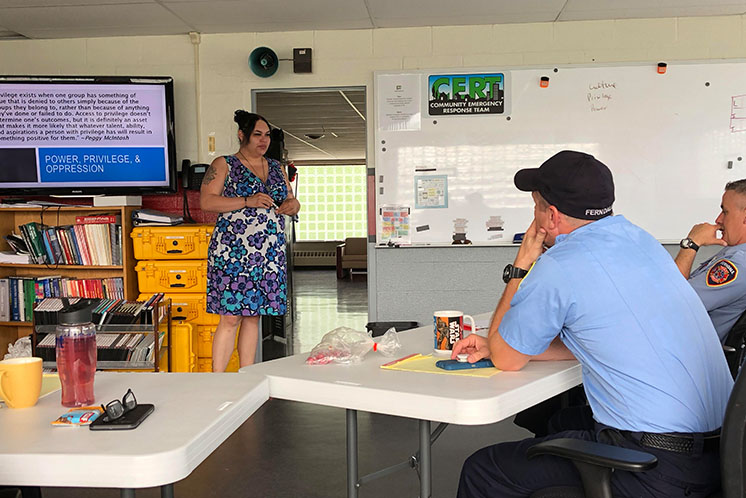
$74,768 First year of a two-year, $149,536 grant to expand the LGBTQ Learning Labs for Healthcare Professionals.

$88,935First year of a three-year, $270,885 grant to achieve national accreditation for its community-based doula program.
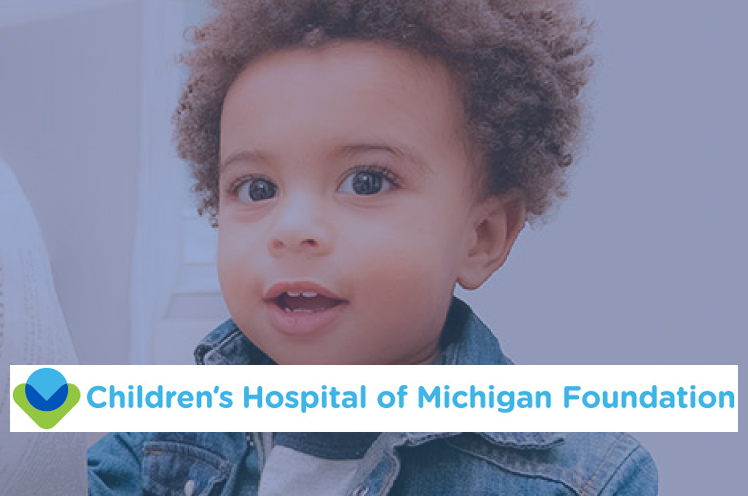
$19,950 First year of a three-year, $59,850 grant to provide vision service to economically disadvantaged students in the Hamtramck Public Schools through its school-based health center.
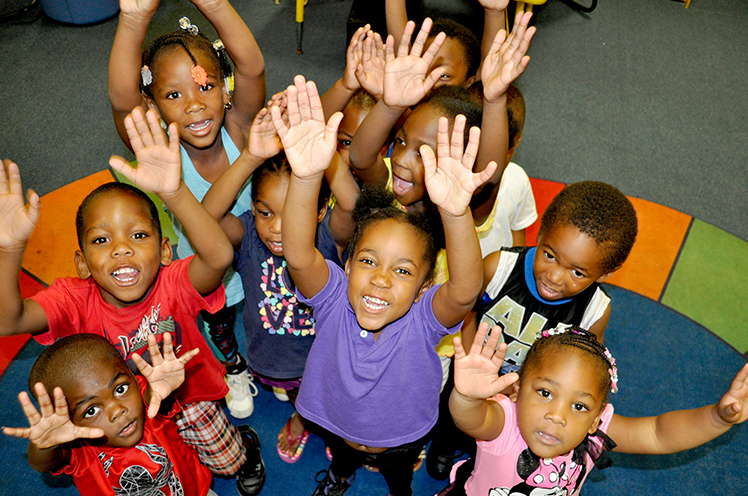
$25,000 Second year of a three-year, $75,000 grant to improve the health of homeless mothers and their children through consistent and ongoing access to health care and education.
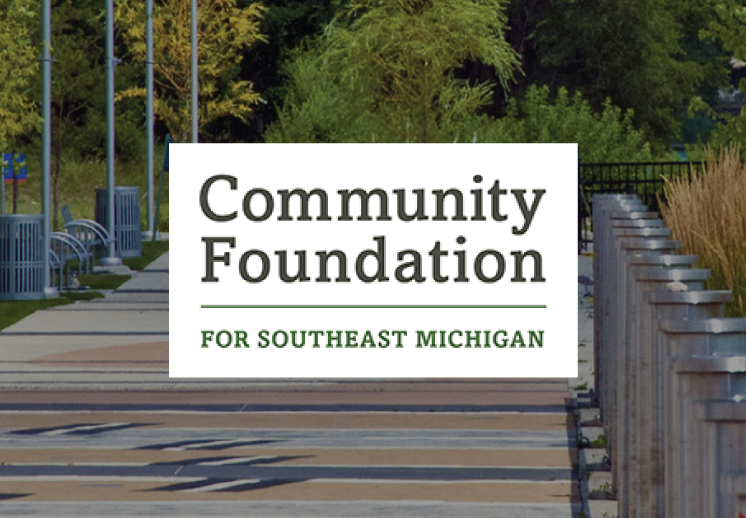
$75,000 First year of a two-year, $150,000 grant to support youth with special needs within Detroit’s Head Start system.

$100,000 First year of a two-year, $200,000 grant to support the equipping of exam rooms in its planned clinic at Gardenview Estates.
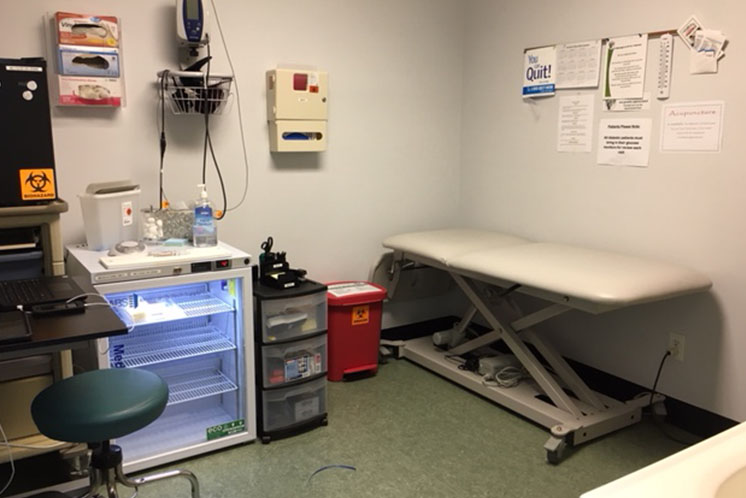
$7,000 Second year of a three-year, $21,000 grant to maintain present clinic services and add an additional weekly clinic session.

$75,000 First year of a two-year, $150,000 grant to increase access to primary care and HIV treatment services for low-income individuals and their families.

$25,000 Third year of a three-year, $100,000 grant to develop and operate a recuperative center for individuals who are homeless and recently discharged from the hospital.

$55,000 One-year grant to develop a new website.
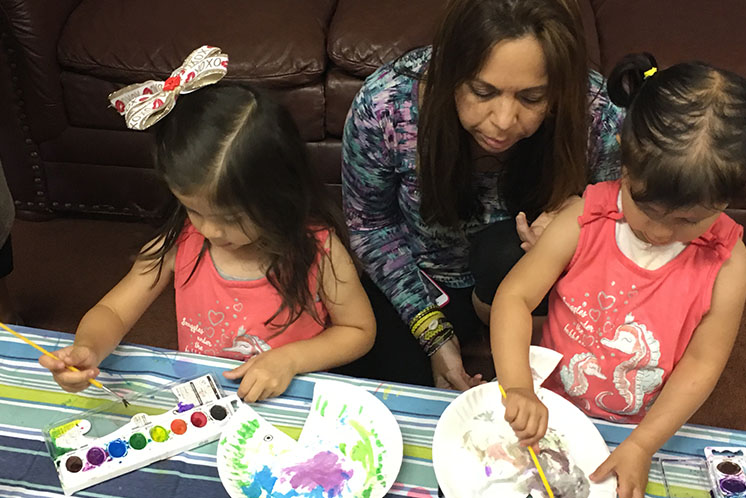
$56,346 Third year of a three-year, $169,035 grant to improve the health and wellness of at-risk children ages 0-3 in Oakland County.
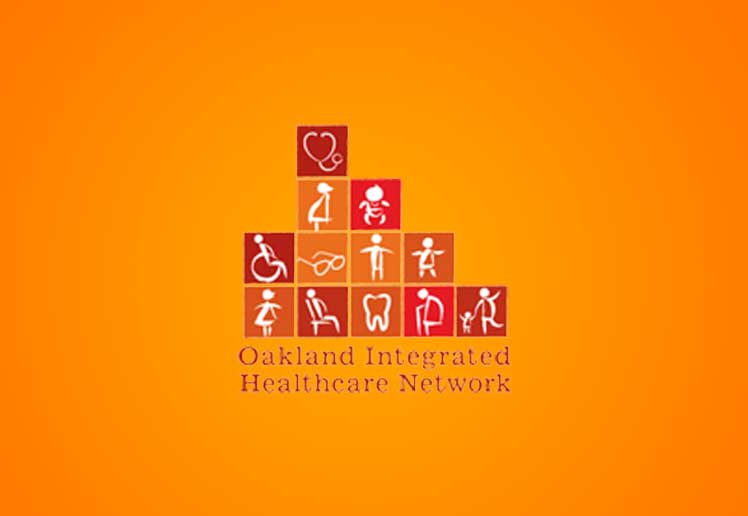
$50,000 Third year of a three-year, $175,000 grant to expand integrated perinatal care by serving underserved and high-risk women and children.
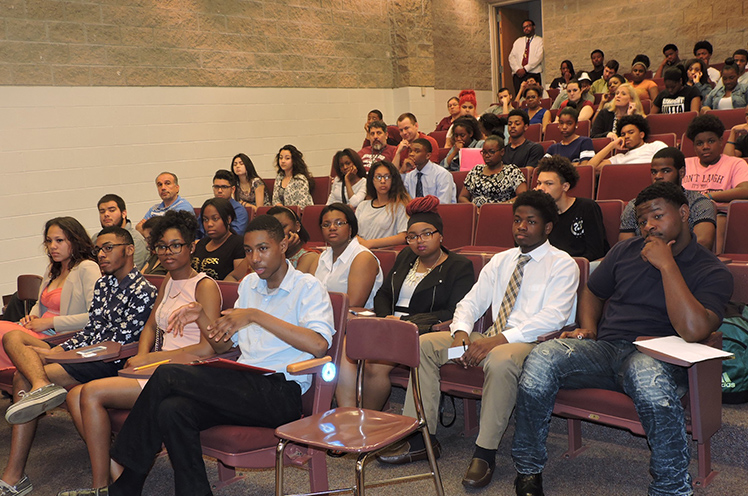
$25,000 Second year of a two-year, $50,000 grant to supplement existing services offered by the River Rouge Teen Health Center.

$50,000 Second year of a three-year, $125,000 grant to develop and implement Dad’s Baby Power, a parenting program for high-risk fathers in Wayne County.
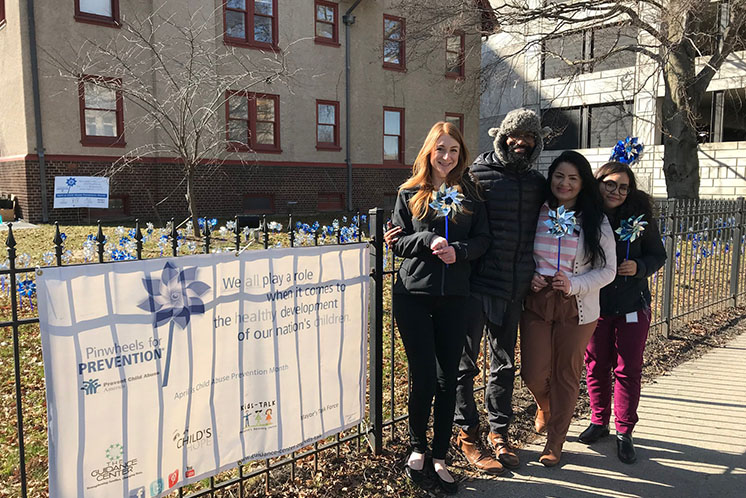
$40,000 Third year of a three-year, $160,000 grant to increase capacity to better meet the child maltreatment and trauma prevention needs of Detroit/Eastern Wayne County.
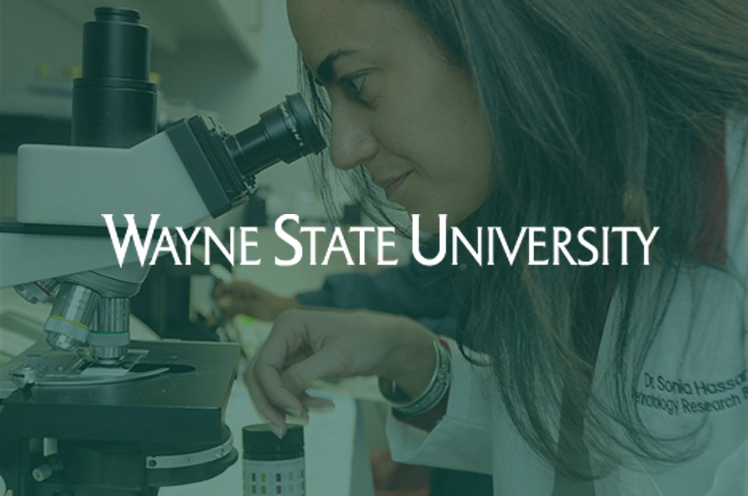
$40,000 First of a three-year, $120,000 grant to provide medical students with a summer research internship.
$10,000 to support Hurricane Maria relief efforts
$10,000 to support Hurricane Irma relief efforts
$6,000 toward the purchase of a van for a new foster family to transport children.
$10,000 to support Hurricane Harvey relief efforts.
Seven grants totaling $26,599 were awarded to support professional development for individual staff from eight organizations.
The Jewish Fund Teen Board is a collaborative philanthropy group providing Jewish teens from the Metro Detroit area the opportunity to learn about grantmaking and philanthropy.
In 2017-2018, our 4th year of programming, two cohorts of teens participated in the grantmaking process. Year 1 consisted of 28 teens experiencing grantmaking for the first time. Year 2 board members had chosen to continue their Teen Board experience, deepening their knowledge and skills through a second year of participation. Over 50 Teen Board members, representing 13 high schools and 14 congregations, granted a total of $100,000. This report is about who they are, what they did and how they did it.
We are the 2017-2018 Teen Board. Our mission is to address community needs through our grantmaking. Through partnerships with Metro Detroit nonprofit organizations we will fund projects with the following priorities:
To support those in our community experiencing economic instability by funding organizations that offer resources, training and educational projects designed to assist individuals in reaching self-sufficiency.
To support projects focused on improving the living conditions and engagement of older adults in our community.
As The Jewish Fund Teen Board, we are a group of teens that strive to address community needs in Metro Detroit affecting youth and families. Our mission is to support programs which assist individuals affected by abuse, both domestic violence and substance related, through education and by providing resources for victims and their families.
Being involved in the Teen Board has allowed us to gain a new perspective on social issues in our community. While we were aware of these issues, we have now learned how to have an impact in these areas of our community and beyond. By giving us a framework in which to make a difference, the Teen Board has increased our engagement in community leadership. Teen Board gives young adults the privelege to become a community leader and the opportunity to be more socially aware.
As a foundation based on Jewish values, it is important to incorporate Judaism into the decisions that we make. Some of the primary values we focused on were tikkun olam, giving tzedakah, and strengthening the Jewish community.
By providing grants to a variety of causes we were able to have a widespread impact on our community. By discussing the intersection between Jewish and philanthropic values, we were able to choose focus areas which we felt would have significant impact in both areas. Through The Teen Board we had the privilege to learn about our responsibility as Jews to improve the world.
The Jewish Fund Teen Board has brought us together with so many amazing (and Jewish) people in the community. The grant making process opened up our eyes to some of the struggles that occur in the Jewish community, which we may not have been aware of. The opportunities that have been given to us as board members has made us more aware of the problems in the community as a whole and that we, as Jews, need to help each other out.
Site visits are one of the most impactful experiences of the Teen Board because they provide an opportunity to see firsthand the importance of an organization. We were looked at and respected as mature decision makers, something which many other teens do not experience. By connecting in person with the leaders of an organization, we were provided with insight into the importance of their work in a way that cannot be seen on paper.
As a board we chose the topic of economic hardship because we have seen people struggle in and around our community and felt there was a need to address this. We wanted to set ourselves apart from past Teen Board cohorts by choosing a problem that is often overlooked, not only in the Jewish community, but in the community as a whole. While the majority of The Jewish Fund Teen Board lives in the suburbs of Detroit, we felt it was important to make a difference in the city itself, where the problems seemed more apparent. As teens in a position to make a difference, we felt this would give us the greatest impact on our community. The Teen Board is proud to fund an innovative organization committed to making significant community impact in this area:
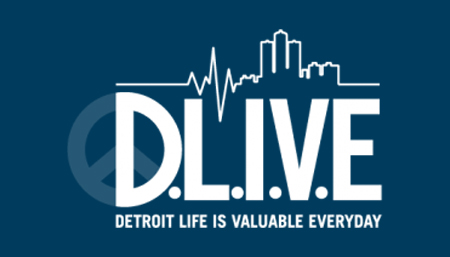
$19,000 to support DLIVE, a hospital-based violence intervention initiative that exists to holistically work with youth/young adults who have sustained acute intentional violent trauma.
This focus area was chosen largely due to our personal connections with older adults in our community. We have noticed that services for this population, as well as quality of life, could be seen as lacking. Some of our initial concerns were regarding older adults being the targets of scams and manipulations. Our focus then moved to the everyday life issues of overall care and health concerns in the older adult community. We knew that by committing funding to this topic we could help a large section of our community and have lasting impacts.
The Teen Board made two grants to organizations working to address this issue:

$11,000 to support The Jewish Community Outreach Program which provides the Jewish community with dedicated and tailored access to support and education regarding Alzheimer’s disease and dementia.
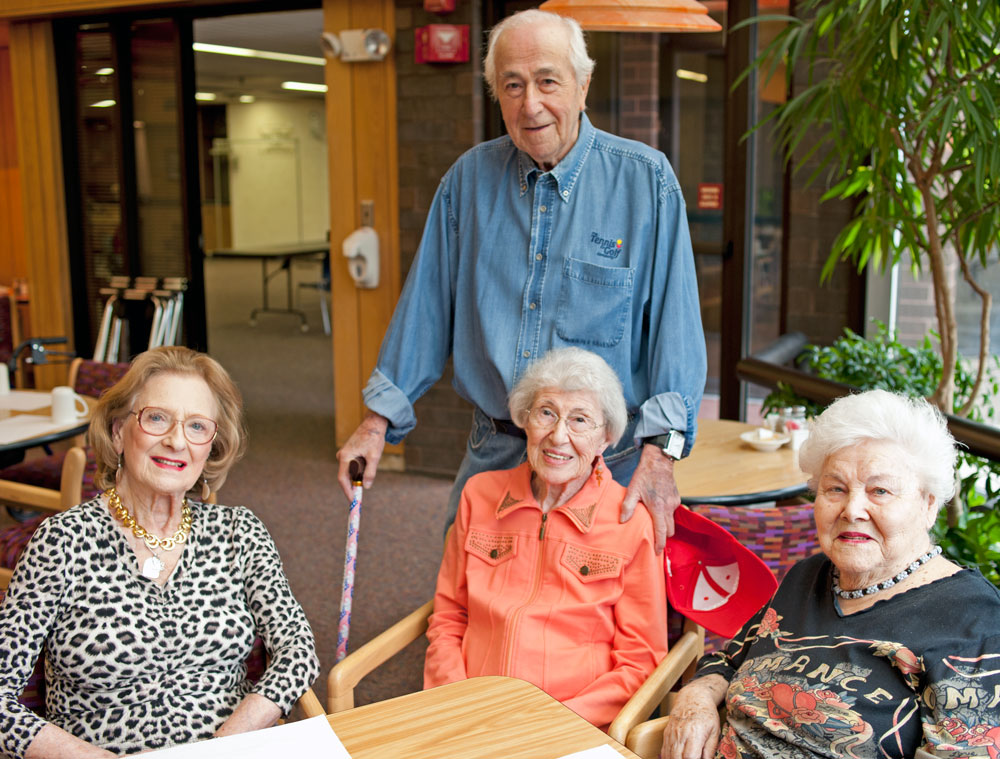
$20,000 to support the Prentis Wellness Center in providing a safe and senior-friendly equipped fitness and wellness center for JSL residents at the Prentis Apartments.
Substance abuse is a pressing topic for all populations in the community and recently the opioid epidemic has grown. During Year 1, substance abuse was one of our top choices during our discussion of focus areas and this year we decided to pursue solutions for the problem. On social media, at school and on the news, we have learned how prevalent the issue of drugs are in society and this year we knew we wanted to help combat the epidemic. All populations from teens to adults and their families are affected. Our grants this year aimed to educate and prevent substance abuse from growing in the community.
The Teen Board made two grants to organizations working to address this issue:

$2,992 to support Recognizing the Signs of Substance Use in Adolescents, a staff training program to increase the ability to recognize warning signs of alcohol and drug use.

$10,000 to support the SHE-Strong, Healthy, Empowered program to help young women develop skills and empower them to make healthy choices.
We see domestic violence as an issue in our community that can be taken lightly, but in reality is very serious. As teens who are just beginning to experience adult relationships, we found domestic violence as something necessary to learn more about. Today in the media, we constantly see stories about people in positions of power being somehow involved in cases of domestic abuse. This issue can be easily overlooked because of the status of the abusers, but we think the conversation needs to be had regardless of wealth or power. The Teen Board hopes to broaden and continue the conversation about this significant problem.
The Teen Board is proud to support three grants to organizations working to address this issue:
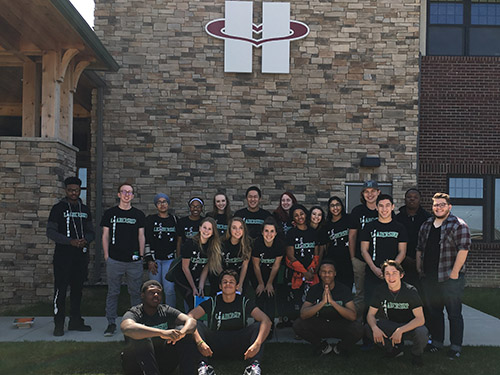
$15,000 to support Building a Future without Violence, which provides youth with increased awareness of the prevalence of domestic and sexual violence, while developing skills for healthy relationships and learning skills to intervene in a culture that allows for violence to occur.
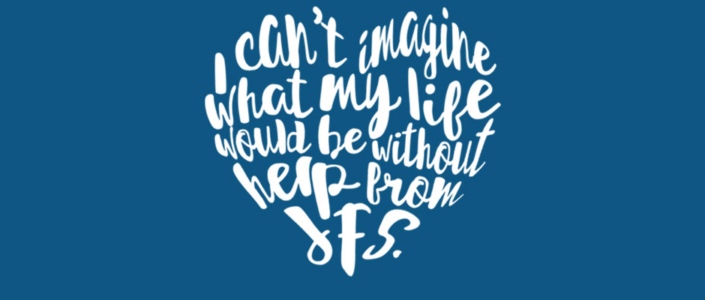
$13,660 to support Rodef Shalom, which will empower community members through training to positively and safely intervene in situations with dynamics of power and control.
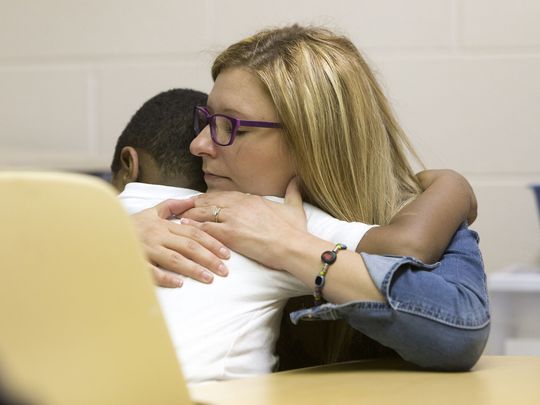
$10,000 to support the Trauma Smart® program which provides trauma informed training to teachers and parents.
St. Joseph Mercy Oakland – Mercy Dental Center
The Robert Sosnick Award of Excellence was established in memory of Robert Sosnick, whose bold vision and leadership skills led to the creation of The Jewish Fund. In tribute to Mr. Sosnick and in keeping with the mission of The Jewish Fund, the program selected for the award should represent the ideals and standards of excellence that are both hallmarks of this award and characteristics of Robert Sosnick. Innovation, collaboration, achievement of program objectives, impact on quality of life, management of resources, and sustainability are all key criteria for a program’s selection for this annual award which includes a $25,000 prize.
The Mercy Dental Center expanded its services in 2013 with a grant from The Jewish Fund to provide uninsured individuals and people with disabilities access to a full range of dental services, from preventive to specialty dental care. Concurrently, the Center provided opportunities for recent dental graduates to get experience in hospital-based dental care. Recently, the Dental Center has renovated its facilities, which are state-of-the art and accessible to those with physical adaptation needs. It has also employed a community-based dental care coordinator, the focus of The Fund’s 2018 grant.
Over the course of the grant terms, The Jewish Fund recognizes the critical role of the Dental Center in providing quality dental services to dozens of adults with developmental disabilities who have either not received care or had received insufficient care. The direction of the Dental Center focuses on providing a supportive environment, in which these patients feel comfortable receiving care and following up on suggested or required activities. Additionally, the Center expanded its clinic this year to serve more individuals with low income.
As of 2018, out of a total patient population of 500, 100 adults with special needs regularly utilize Mercy Dental Center for emergency and routine dental care. A unique feature to the program is its inclusion of an accredited Graduate Residency, with three residents participating and a fourth to begin this year. These recent dental school graduates receive training and hands-on experience with complex cases and serving patients with significant needs. As part of the residency program, twenty community-based dentists volunteer their time and expertise as attending dental specialists.
The Jewish Fund is proud and excited to honor St. Joseph Mercy Dental Center with the Robert Sosnick Award of Excellence. The Clinic excels in each of the eight criteria areas from which nominated projects are reviewed. We are especially impressed with the innovation and commitment demonstrated by the Clinic in reaching out to this previously underserved community of adults with often profound disabilities, who had little or no access to dental care. Its commitment to training dentists to work with a uniquely vulnerable population is also representative of the Clinic’s efforts to outreach beyond its own patient base, and for decades to come. The Clinic’s impact on the quality of life of these patients is profound. Lives have gone from painful to pain-free because of these services.
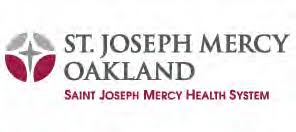
2017 Hamtramck School-Based Health Center in partnership with Children’s Hospital of Michigan Foundation
2016 Starfish Family Services
2015 Hebrew Free Loan
2014 Isaac Agree Downtown Synagogue
2013 Fair Food Network
2012 Forgotten Harvest
2011 Kadima
2010 Summer in the City
2009 JARC
2008 Jewish Senior Life/JVS
2007 Jewish Family Service
2006 Jewish Community Center
2005 City Year Detroit
2004 Children’s Dental Health Foundation
2003 DMC/Sinai Grace Hospital
2002 Jewish Hospice & Chaplaincy Network
2001 Kids Kicking Cancer
2000 JVS/Jewish Senior Life
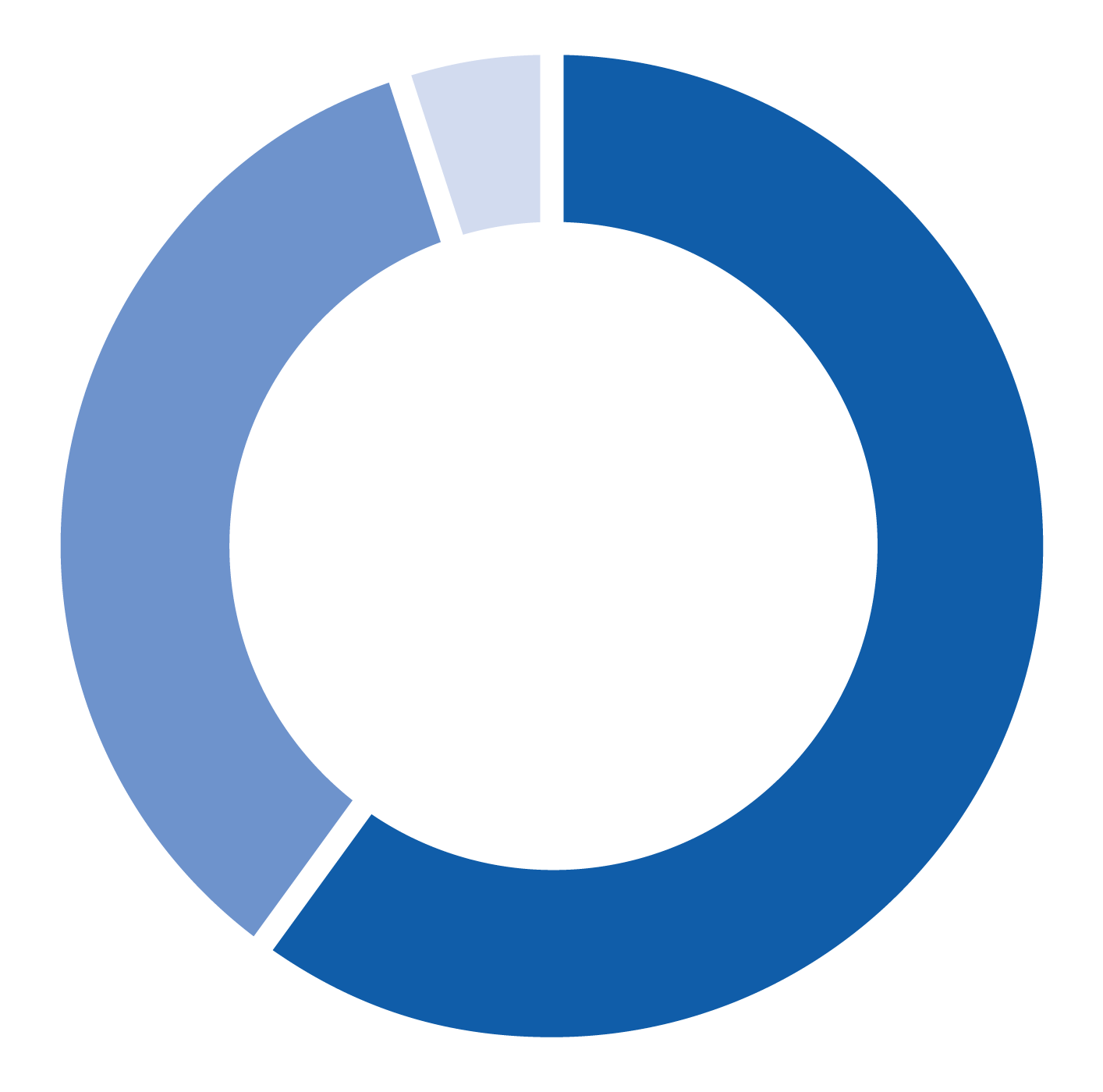
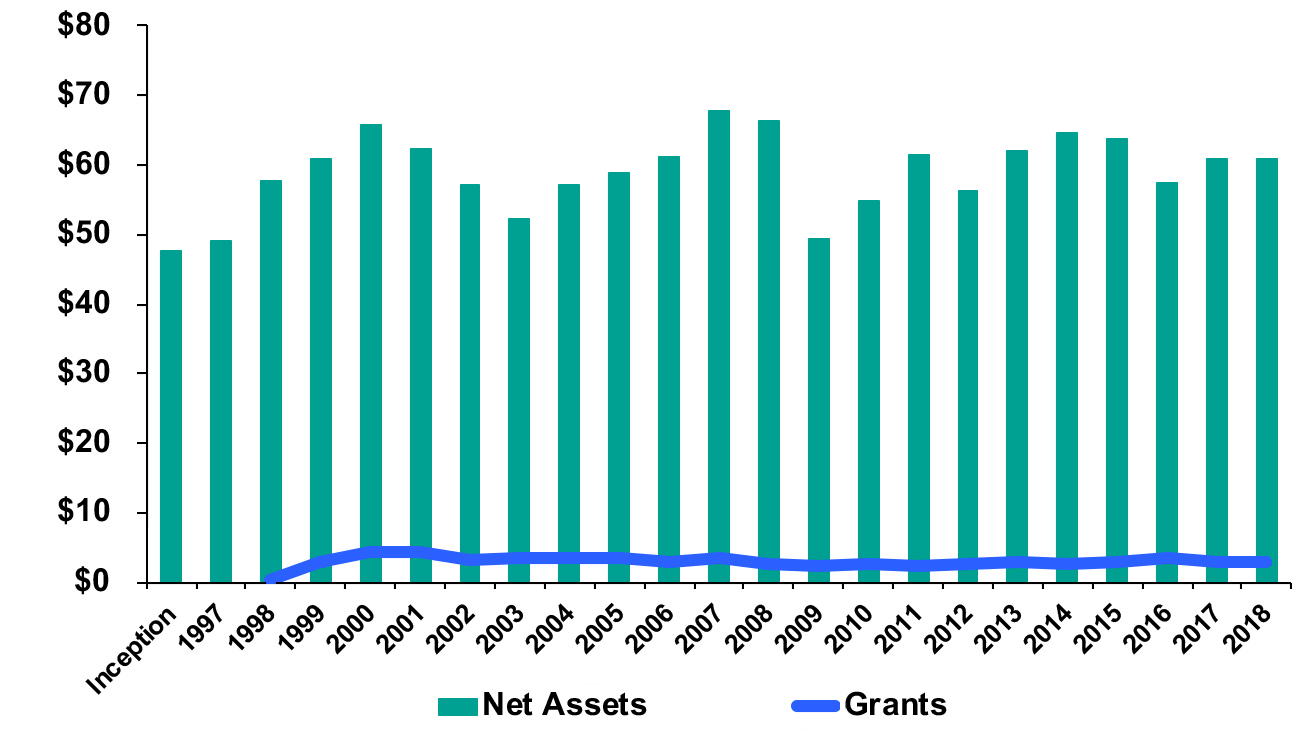
For the year ending May 31, 2017, The Jewish Fund had a total return of 12.8% and the investment’s asset value was $61.6 million. The table above summarizes The Fund’s historic asset balances since its inception in 1997. During the 2017 fiscal year, The Jewish Fund award over $3 million in grants, representing the one-year payments of multi-year and single-year grants. Since inception, The Fund has awarded over $63 million in grants.
59
Nancy Grosfeld
Chair
Michael Eizelman
Vice Chair
Jim Bellinson
Michael Berger
Roselyn Komisar Blanck
Penny B. Blumenstein*
Jeffrey M. Davidson
Elyse Foltyn
Jeffrey D. Forman, M.D.
Lynda Giles, Ph.D.
Dan G. Guyer, M.D.
Renee Handelsman, M.D.
Laura A. Hughes
Alan Jay Kaufman
Scott Kaufman
Sherri L. Ketai
Ronald A. Klein
Anessa Kramer
Richard Krugel, M.D.*
Lawrence Lax
Lisa Lis
Beverly Liss
Rabbi Harold S. Loss
Michael W. Maddin*
Robert H. Naftaly*
Joshua F. Opperer
Gregg Orley
Marcie Hermelin Orley
Susie Schechter
Jeffrey B. Schlussel
Mark E. Schlussel*
Karen Sosnick Schoenberg*
Alexis J. Schostak
Kelly Sternberg
Michael R. Tyson
Hon. Helene White
Lawrence A. Wolfe
Margo Pernick
Executive Director
Dorothy Benyas
Secretary / Treasurer
Robert Sosnick זצ״ל
Mark E. Schlussel
Co-Founding Chairs
Elijah Appelman
Sam Arnold
Jeremy Berger
Chase Colton
Maddie Feinstein
Benny Fellows
Jessica Goldberg
Noa Green
Bree Gross
Emily Kaufman
Nia Kepes
Adin Kleinfeldt
Elan Krakoff
Evan Krasnick
Atara Kresch
Lilley Kroll
Sloane Krugel
Ian Rosenwasser
Mara Sabin
Jacob Schlussel
Leah Segal
Benny Shaevsky
Jordan Shefman
Adam Silberg
Eliana Silverman
Jack Wander
Anna Warshay
Aviv Wolf
Hugh Camiener
Charles Gertner
Kate Gordon
Nicole Kahan
Jared Katzen
Sofia Klein
Sarah Kreitman
Rafi Perrault-Victor
Ellie Rothstein
Claire Schwartz
Evie Segal
Ryan Silberg
Daniel Sternberg
Jonah Stone
Jordyn Taylor
Julia Abramson
Rebecca Benezra
Yara Hyman
Emma Jacobson
Eliana Tieke
Ari Weiss
Margo Pernick
Executive Director
Martha Goldberg
Teen Board Coordinator
Lauren Rouff
Teen Board Facilitator: Year 2
Kristin Moskovitz
Grants Management Coordinator
Nancy Grosfeld
Michael Eizelman